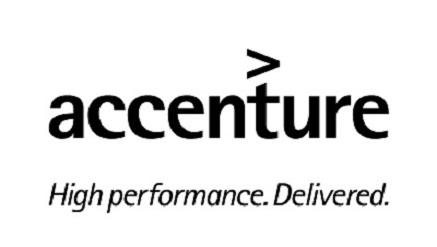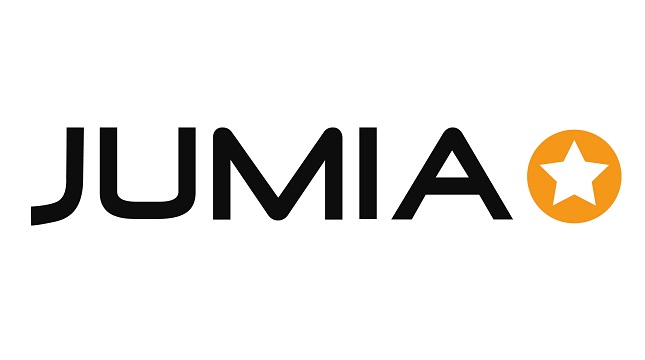E-Business
Accenture, 6 Others Lead SAP Suite on HANA in Utilities Services Provision

An Energy Insights has provided a comprehensive assessment of the firms delivering services for SAP’s Suite on HANA and a snapshot of their capabilities.
Vendors evaluated in this IDC MarketScape include: Accenture, Atos, Deloitte, HP, IBM and KPIT.
According to the report, Leaders in professional services for SAP Suite on HANA in the utility sector are placing considerable emphasis on innovation, development of industry-specific solutions that leverage the portfolio of methodologies and technologies that are associated with Suite on HANA, and scaling of skilled and certified resources.
The utility sector is facing a particularly pressing set of well-documented challenges from numerous directions.
As a result, there are some poignant value propositions for the updating of utilities’ legacy systems (see Business Strategy: Application Modernization in the Utility Industry, Document # EI253211, December 2014).
The market for SAP Suite on HANA is still in its early stages, a fact that several service providers made poignantly clear to us on several occasions during this research.
Given this, and how intertwined the service offerings for HANA and Suite on HANA are, from the service providers’ perspective, the IDC MarketScape’s assessment of Suite on HANA services is multilayered, taking into consideration: the availability of service provider references for Suite on HANA; Suite on HANA offerings and capabilities (including Design Thinking, HANA Live, Smart Business Cockpits, and SAP Fiori); HANA experience and capabilities; and SAP experience, capabilities, and co-innovation.
For utilities, the primary decision factors for selecting a services firm for Suite on HANA will be:
The firm’s focus on the utilities industry, and commitment to, and experience in, the utility industry; the firm’s demonstrated commitment to building out the it’s services and capabilities to Suite on HANA.
The intellectual property the firm has developed for Suite on HANA, whether it is rapid deployment solutions it has developed, smart business cockpits, or how it is incorporating design thinking to be able to leverage Suite on HANA’s capabilities, and the firm leveraging such technologies as Fiori to put the best possible front end on the utility’s business processes.
“Utilities are looking at new technologies that can help them achieve greater operating efficiency and manage through the multiple disruptions hitting the industry. SAP Suite on HANA, with its potential for business transformation, is just such a technology. Utilities need service providers that bring both the SAP expertise and the utility industry experience to help them leverage SAP Suite on HANA,” according to Robert Eastman, research manager, Utility IT Strategies, IDC Energy Insights. “Even at this early stage of this market, there are service providers that are aggressively building their capabilities and offerings, and we would expect to see an even more robust picture of the Suite on HANA service provider landscape a year from now.”
The IDC MarketScape model reviews both quantitative and qualitative characteristics that describe current market demands and expected buyer needs for professional services.
The evaluation is based on a comprehensive and rigorous framework that assesses the offerings and capabilities that service providers are delivering to the market, what they have to offer relative to the other service providers in the assessment, and the key success factors expected to be the most significant over the short term and the long term.
IDC MarketScape criteria selection, weightings, and vendor scores represent well-researched IDC judgment about the market and specific vendors.
IDC analysts tailor the range of standard characteristics by which vendors are measured through structured discussions, surveys, and interviews with market leaders, participants and end users. Market weightings are based on user interviews, buyer surveys and the input of a review board of IDC experts in each market.
IDC analysts base individual vendor scores, and ultimately vendor positions within the IDC MarketScape, on detailed surveys and interviews with the vendors, publicly available information and end-user experiences in an effort to provide an accurate and consistent assessment of each vendor’s characteristics, behavior and capability.
E-Business
Firm Enhances its Security Awareness Platform with SCORM and PDF Support

Kaspersky has introduced an update to its Automated Security Awareness Platform, adding full support for PDF and SCORM (Sharable Content Object Reference Model) – the industry-standard protocol for deploying and managing e-learning content.

The enhancement enables organisations to build fully customised cybersecurity training programmes that reflect their infrastructure, risk profile, and internal policies, while continuing to benefit from Kaspersky’s expert-driven security content and phishing simulations.
According to the Kaspersky report titled “Redefining the Human Factor in Cybersecurity”, employees responding to phishing attacks was one of the main causes of cyber incidents in companies worldwide, accounting for 21% of cases among other reasons.
At the same time, additional Kaspersky research reveals that social engineering attacks are predicted to increase more than any other type in the nearest future, with 87% of respondents believing that social engineering attacks will become even more effective due to the use of AI tools.
The new Kaspersky Automated Security Awareness Platform (Kaspersky ASAP) update directly addresses several persistent challenges such as reducing the number of human-related incidents, cutting time spent on managing training programmes, decreasing regulatory and compliance risks, and minimising potential legal or reputational damage stemming from cybersecurity breaches.
With the new SCORM support, the platform becomes even more flexible: companies can now upload, track, and manage their own SCORM-based learning materials directly within the system. In addition, companies can accelerate their programmes by using easier-to-create PDF-formats.
This allows organisations to tailor training to their specific technology stacks and emerging threats targeting their industry or region. Businesses that have already invested in third-party SCORM courses or internal learning development can now seamlessly reuse their existing modules, protecting their prior investments while strengthening their cybersecurity posture.
The combination of Kaspersky’s embedded content built on real cases uncovered by the company’s world-class experts with customers’ PDF materials or SCORM modules enables a true best-of-breed approach to human risk management.
Organisations can supplement Kaspersky’s up-to-date cyberattack scenarios with internal policies, unique workflows, and industry-specific lessons, ensuring training resonates with employees and reflects real operational challenges.
“Human behaviour remains one of the most unpredictable elements in cybersecurity and also one of the easiest for attackers to exploit. By adding SCORM support to Kaspersky Automated Security Awareness Platform, we’re giving organisations the flexibility to build training programmes that truly match their internal realities.
“Combined with Kaspersky’s expert-driven content and real-world attack data, this update empowers companies to create more adaptive, relevant, and impactful awareness programmes than ever before,” comments Svetlana Kalashnikova, Security Awareness expert at Kaspersky.
E-Business
NDPC, 60 DPAs Collaborate on Enforcing Privacy Rights in the Use of Al

Nigeria Data Protection Commission (NDPC) has joined sixty (60) other Data Protection Authorities (DPAs) in endorsing the “Joint Statement on Al-Generated Imagery and the Protection of Privacy.”

NDPC
The Joint Statement was coordinated by the International Enforcement Cooperation Working Group (IEWG) of the Global Privacy Assembly.
This underscores the growing concerns regarding the privacy risks posed by Artificial Intelligence tools capable of generating realistic images and videos of identifiable individuals.
The Joint Statement highlights concerns over the misuse of Al-powered tools to create non-consensual imagery, defamatory content, and other harmful materials, particularly affecting children and vulnerable groups.
It calls on organisations to implement strong safeguards, ensure transparency, provide effective content removal mechanisms, and comply fully with applicable data protection laws.
The current effort forms part of a continuum of steps being taken by Nigeria to ensure the responsible use of Al. It will be recalled that the Honourable Minister of Communications, Innovation and Digital Economy, Dr ‘Bosun Tijani, led the initiative for the development of the National Al Strategy.
The NDPC also issued the General Application and Implementation Directive (GAID), which, amongst others, mandates privacy by design and privacy by default in the development and deployment of Al tools.
The National Commissioner/CEO of the NDPC, Dr Vincent Olatunji, has directed that the Nigeria Data Protection Act (NDP Act) Compliance Audit Returns (CAR) by data controllers and processors of major importance will serve as a yardstick for monitoring and evaluating responsible use of Al for data processing in Nigeria.
E-Business
Jumia Tech Week 2026 Begins with Tech Deals on Smartphones, Electronics, and Everyday Technology

Jumia Nigeria has announced the launch of Jumia Tech Week 2026, a two-week campaign offering customers access to discounted technology products across key categories, including smartphones, computing, home entertainment, and wearable devices.

Starting from March 2 to March 15, Jumia Nigeria’s Tech Week 2026 is themed ‘Tech Products for Less’ – a deliberate commitment by the e-commerce giant to drive down the cost of technology products for Nigerian consumers. The campaign offers significant price reductions across key product categories, enabling more Nigerians to access the devices they need at prices that reflect the company’s dedication to affordability and consumer value.
Jumia Tech Week will feature deals across a wide range of product categories, including mobile phones, computer systems and accessories, televisions and audio equipment, gaming products, home appliances, portable power solutions, health technology,, and wearable devices.
Customers will also have access to curated recommendations, including top smartphone deals, must-have accessories, gaming essentials, and home technology upgrades.
According to Temidayo Ojo, CEO of Jumia Nigeria, the campaign reflects Jumia’s broader commitment to making everyday technology more accessible to Nigerians.
“Technology has become an essential part of everyday life, and access to the right devices enables more people to participate fully in the digital economy,” said Ojo. “At Jumia, we remain focused on expanding access and improving the shopping experience as we continue to build Nigeria’s everyday retail destination.”
The campaign will include a range of customer engagement initiatives such as flash sales, brand days, anchor deals and interactive activities designed to enhance the online shopping experience.
Special highlight periods, described as Explosion Days, will take place on March 6 and March 13, featuring limited-time offers across selected technology categories. Customers will also be able to participate in interactive activities, including product-based games, treasure hunts,, and live shopping sessions during the campaign period.
The campaign will feature participation from leading brands including Oraimo, Silver Crest, Samsung, Ecoflow, Nivea and Aeon, offering customers a wide selection of technology, household and lifestyle products. Early access promotions already begun during the teaser period from February 16 to March 1, allowing customers to preview selected deals ahead of the official launch.
Jumia Tech Week forms part of the company’s broader strategy to expand e-commerce adoption by improving access to essential products and enhancing the customer experience across its platform. As Nigeria’s e-commerce market continues to grow, Jumia remains focused on strengthening its product assortment, logistics capabilities, and digital experience to serve customers better nationwide.
Customers can participate in the campaign by using the Jumia mobile app or visiting the Jumia website and following the conversation online using #JumiaTechWeek.

 Telecom2 days ago
Telecom2 days agoSunil Bharti Mittal Conferred GSMA Lifetime Achievement Award for Transforming Global Telecommunications

 Telecom2 days ago
Telecom2 days agoWhy Digital Trust Matters: Secure, Responsible AI for African SMEs?

 General News2 days ago
General News2 days agoKrishnan Exits Africa Data Centre to Embark on Professional Chapter

 E-Business2 days ago
E-Business2 days agoJumia Tech Week 2026 Begins with Tech Deals on Smartphones, Electronics, and Everyday Technology

 E-Financial1 day ago
E-Financial1 day agoNRS Targets N40trillion in Tax, Royalty Revenue in 2026

 Broadcasting2 days ago
Broadcasting2 days agoNCAA Orders Overland Airways to Refund VAT Charged on 2025 Tickets

 Telecom2 days ago
Telecom2 days agoHouse Probes Fintech Regulation via Public Hearing on New Commission Bill

 E-Financial1 day ago
E-Financial1 day agoSEC Revokes Registration of Kensington Agro Trading Limited























